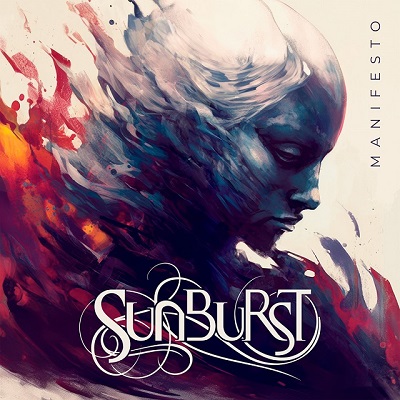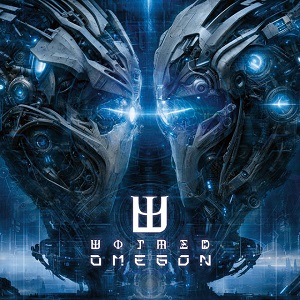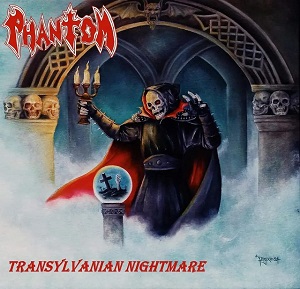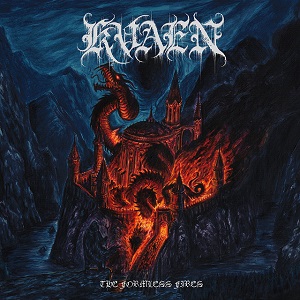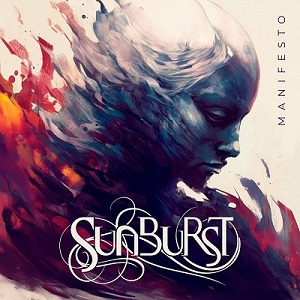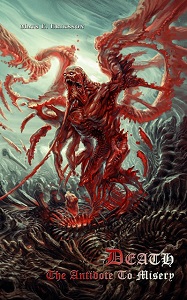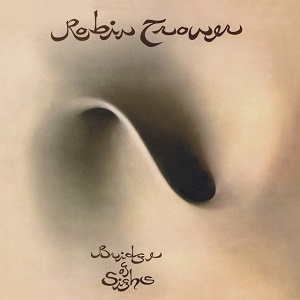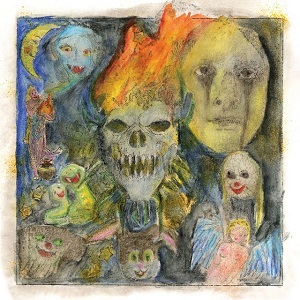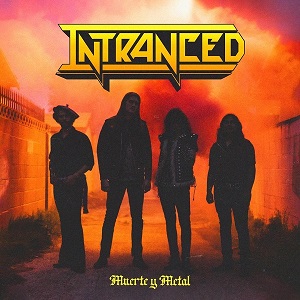Exclusive: LEE AARON Talks Metal On Ice and The Issues With 'Metal Queen' - "People Kind Of Put Me On A Pedestal And Treated Me Like I Was The Toughest Chick On The Planet"
November 26, 2013, 10 years ago
By "Metal" Tim Henderson
LEE AARON. The name and reputation still resonates nearly 30 years after she captivated the world with her looks, musical prowess and super-hero abilities! But more on the 'Metal Queen's' dominance later, as we toss the loin-cloth aside and tie up our skates and add the snow tires. Stereotypes aside, our moniker may be labelled Great White North, but not too disappoint anybody, we don't live in igloos up here. It's all 'aboot' extremes … extreme cold, but extreme heat too! And Sean Kelly's (GILBY CLARKE, HELIX, NELLY FURTADO) book about criss-crossing the expanses of Canada - which unites some of Canada's elite hard rock/heavy metal heroes with resumes such as Helix, CONEY HATCH, HEADPINS, KICK AXE and KILLER DWARFS - is all about Metal On Ice. And the Metal Queen and her ice-dancing tales was invited to the party.

"The irony is that I'm actually married to a gentleman and musicologist. He's like an encyclopedia. He used to teach the history of 20th-century music at Capilano University where we live (North Vancouver, British Columbia) and he has complained to me frequently that I am not mentioned and blah blah blah history book. But it makes him angry; somebody had her share of gold and platinum records and a certain degree of success internationally during that juncture of time. But it is a very odd little chunk of Canadian music history that is missing. I feel really honored that Sean has included me in it. But it also embraced, not only the nostalgia part of it, but the friendship of it as well. Back when we are all on the road together, we were younger, we were full of piss and vinegar and energy. But there is definitely more of a competitive side to it. But now that we all have matured over the years (laughs) - we are not going to say the 'old' word - there is a real camaraderie there, and a sense of allegiance and friendship, because we all went through the same experiences. The bad record labels, the horrendous touring conditions, the bad gigs, the good gigs, the glory, the disappointments, the brotherhood, the sisterhood."

Does the Metal On Ice project warm your heart reminiscing about these memories?
"It does. But I went through a few years, to be honest, in the mid to late '90s. With the advent of grunge, any act that had anything to do with hard rock or corporate rock, pretty much fell off the edge of a cliff, as far as the music industry and media was concerned. It was a new movement and we were not part of it and that was that. I don't think that I am the only artist that felt marginalized or pushed to the sidelines because of that. And that was hard to take. I remember having moments of 'huh, that was my five minutes of fame?' But, as you grow older and learn, that is everybody's five minutes of fame. It's a cyclical industry and things come and they go. And there is kind of an '80s resurgence right now, a new generation of kids are discovering this music now. And now it's cool again. That is what happens. But yeah these were some great memories, they were some of the funnest times of our lives."One main point about Metal On Ice is the fact that collectively you all had to deal with the various elements this beautiful country throws at us!
"That is the exact theme of this book. You have to be hearty; you have to remember between Thunder Bay and Winnipeg there is nothing except for a vast stretch of road and you better hope that your van doesn't break down, and you need to fill up because this is the last gas station from miles. It's all about our collective touring experiences in this great, white, vast land in which we live."Had you ever spoke amongst yourselves about these experiences prior to the book?
"Well, some of us were labelmates. I was labelmates with ANVIL (on Attic Records), and when I watched that movie (ANVIL! The Story Of Anvil) and saw a 50-year-old man (Steve "Lips" Kudlow) holding on to a 14-year-old hope. How do I explain it? It made me feel compassion… I'm trying to say this in the nicest way. It's not that I think he's crazy, but very few people can retain that childhood enamorment with the industry and hold onto a dream that long. In a way that is admirable."Do you miss anything from that part of your career?
"It was a scene right? It was an era in time. I remember finishing a gig at one place and then knocking on the door at Rock 'N Roll Heaven at two in the morning and management would let me in with my friends for cocktails. It was like a whole scene that existed at that time, where everybody knew each other and there were legions of fans. But the internet has changed all of that right now, so there was something really unique about those years."
Let's talk about the song (and video) for 'Metal Queen' which is arguably your crowning achievement. Is it tough for you to go back to that place in your career. It was almost like you painted yourself in a corner, but not on purpose.
"Yes. Usually we create tough characters to protect the softer side of ourselves. I've written this other song called 'Joan Of Arc' and the lyric goes 'just like Joan Of Arc wearing paper armour.' I think we all are kind of like that. We have the person that we'd like to present to the outside world … everyone has a façade, it's who we are. And then there's the person that we really are. And the goal I suppose is to converge and be more of the same as you grow and mature. 'Metal Queen' embraced an idealism about womanhood and femininity that I had at that time and through the video and subsequent perceptions, it didn't really translate. Certain people got it, certain people did. In fact, Europe was far more ahead at getting that song. But because the way that North America is, the way that women are marketed here, it created stereotypes for me. And I definitely felt boxed into a corner. People kind of put me on a pedestal and treated me like I was the toughest chick on the planet, this Amazon woman. 'This metal queen, don't mess with me!' Is that who I really am? Of course not. Nobody can live up to that kind of expectation right?"
And then you distanced yourself from being the rocker chick and left the scene entirely.
"Yes. In 1992 it became apparent to me that I was never going to get a release in the United States as long as I stayed on Attic Records. I'm being very candid here and I don't want to badmouth anybody or make anybody feel bad, but this is the truth. They had tried several times to get me releases in the States, but they weren't just trying to get Lee Aaron released, they wanted a label deal for their entire catalog and that wasn't happening. I know that people wanted select artists off the label myself included, but not the whole label, the whole roster. God love Al (Mair), he was a very motivated man, enthusiastic and he believed in all his artists. So he tried to launch out of America, and he got investors on board and I was going to be one of the premier artists launched on that label. Unfortunately all the investment didn't happen, it didn't come through. By the time we were looking on the next album for a US release, I kind of missed the boat with my most successful album (1989's Bodyrock). It was a matter of circumstances and the music industry was changing and shifting. So it became apparent to me that I would never get a US release if I stayed on this label. So my lawyer and my manager advised me to break ties and get off and start my own label because I was a platinum artist. What they weren't anticipating was that grunge was about to happen. So we borrowed all this money - like a half million worth of money - from a variety of investors, development banks and equity loans, and started this record company together. Unfortunately the only person that was really liable if anything screwed up was me. And in fact a lot of these investments were commissioned by the powers that be because legally they could do that. And then when we didn't sell as nearly as many records as we had hoped because grunge happened, and we couldn't get the media and industry support, people just walked away. So in 1996 I went bankrupt. By choice. Or I could've spent the next 15 years of my life trying to pay off a half $1 million. I said 'these are my options? Bankruptcy doesn't look so bad.' With that said, it was business bankruptcy and I was able to recover from that and get back on my feet. So what I did, I decided that I was done with pop culture, I was done with this industry. I just wanted to do something that I wanted to do. So I started singing jazz locally in a few Vancouver nightclubs and people were like, 'wow, this is amazing, you've got to do more of this.' So it's sort of snowballed from there. So for me it was kind of an artistic side-line thing to do, just for me. And so it snowballed into a little bit more, and people thought that I was pretty good at it. And I made a record, but to make a long story short, I don't really have any negative feelings. My story is not an uncommon story. And I fully recovered and I own a beautiful house in White Rock, BC and I have kids, and a wonderful husband. The best thing that ever happened was that I decided that nobody else was going to take control of my records anymore. I was going to do it myself. So my next record, I sold only a tenth of what I had sold on my previous albums, but made ten times the money! (Laughs) And I went 'what the hell!?'Because really, you were at the bottom of the totem pole to receive your funding when you are in that type of an industry situation."
And then Sweden Rock came to the rescue! That kind of brought you back into the rocker chick spotlight.
"Well, I have been doing the odd rock show when people had asked for it. But yes, I got an offer to go over there (in June 2011). In all my travels, I had been booked to go to Sweden twice and circumstances - powers that be that happens - I was never able to make it. So this was my first show ever on Swedish soil and it was crazy. It was a once-in-a-lifetime opportunity, because the reality is you don't get invited back every year. You get invited back every decade if they love you on a festival like that. So that was a real wonderful opportunity to get to go over there and do that. I was extremely well received and I had a huge, huge autograph lineup. After 30 years, it was super fun to do that."
Give us the Coles Notes version of your present and future.
"I've released a few things on my own which you are able to get at my website (LeeAaron.com). There's not really a point to try to get things in stores these days. All of my back catalog is available for download on places like Amazon. But if you want nice, beautiful hard copies of things, then you go to LeeAaron.com. In the past few years, I've put together a three-DVD anthology that includes a bunch of interviews, video clips, rare live footage, fan footage, little treasures. I put together something that wasn't my commercial videos, that fans couldn't get anywhere else from my archives. My husband encouraged me to do that because he's kind of an archivist that way. There's also a Live At Sweden Rock DVD and a commemorative 30 year CD (Radio Hitz And More) there as well."
So you're in a good "heavy mental" place these days?
"Yes I am. And I've got new material as well and I rotate some of these new songs live so I get feedback. So I have a couple that I'm getting some really positive feedback on right now. I don't think I'm going to do an entire record, I will probably put out a single and see. You don't have to do full albums these days. And it's rock."

